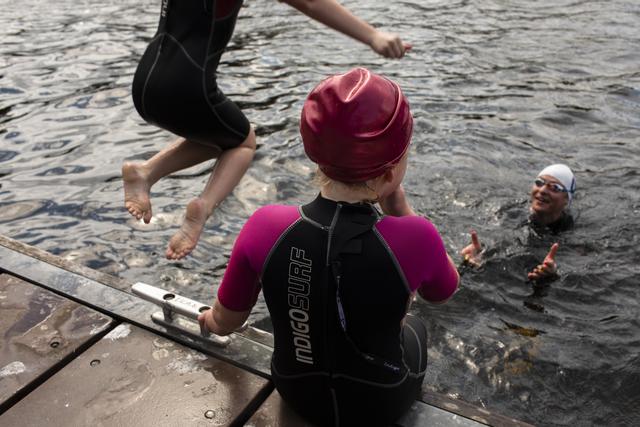Works commence in Lifford as part of major cross-border project
Uisce Éireann in partnership with Northern Ireland Water (NI Water) is delighted to announce the commencement of works in Lifford, as part of a major cross-border project aiming to improve water quality in Carlingford Lough and Lough Foyle.
The Shared Waters Enhancement & Loughs Legacy (SWELL) project, which has been awarded €35m under the EU's INTERREG VA Programme, managed by the Special EU Programmes Body (SEUPB), involves the construction of new wastewater treatment works as well as upgrades to sewerage networks on both sides of the border to address wastewater pollution in Carlingford Lough and Lough Foyle. Match-funding for the project has been provided by the Department of Agriculture, Environment & Rural Affairs in Northern Ireland and the Department of Housing, Local Government and Heritage in Ireland.
This week works will commence at Lifford wastewater treatment plant, which will improve water quality through enhanced wastewater treatment. BSG Civil Engineering Ltd are contracted to carry out the work on behalf of Uisce Éireann in line with COVID-19 restrictions. The works will continue throughout 2021, with works planned for completion in the summer of 2022.
As part of the upgrade works a new wastewater treatment plant will be constructed on the existing site, providing secondary treatment. The works also include the upgrading of pumps and sewer network at Sally Gardens pumping station.
The existing wastewater treatment plant at Lifford only provides primary treatment and is operating over capacity. The new plant will cater for an increased population capacity and cater up to a 3,000 population equivalent.
Speaking about the works, Uisce Éireann's Patrick Carty explained: "The commencement of works at Lifford this week is a significant development for the town. The existing wastewater treatment plant is no longer able to operate within the required quality standards. With the installation of a new wastewater treatment plant and upgrades to the pumping station at Sally Gardens, this project will future-proof the town for future residential and commercial development."
Patrick continued: "The benefits of this project to the local community will be far reaching. It will ensure the town's wastewater is treated to the quality standards required by National and European legislation. It will also improve the water quality of a number of surface water bodies including the River Finn, River Foyle, Lough Foyle and nearby coastal areas.
Works are commencing in Co Donegal first in Lifford, with works in Killea and Carrigans scheduled to start later this summer. Network improvement works in Omeath, Co Louth are also scheduled to take place this year. The works in all four locations will have a positive impact on the local environment, on both sides of the border to improve water quality in Lough Foyle and Carlingford Lough."
Tomasz Piadlo, SWELL Project Manager for NI Water commented: "The SWELL project provides a welcome opportunity for both water utilities to work collaboratively to prioritise and align projects in a coordinated way so as to make maximum positive impact on the shared waterbodies on the island of Ireland.
"The commencement of Uisce Éireann's programme of work at Lifford marks another key milestone in the four-year SWELL project. The improvements being made at Uisce Éireann wastewater assets in counties Donegal and Louth will support the extensive upgrades carried out across the border by NI Water to improve the water quality in Carlingford Lough and Lough Foyle."
Highlighting the importance of the project Gina McIntyre, Chief Executive of the SEUPB, said: "We all know that nature does not respect geographical borders between regions. Therefore, cross-border cooperation is vital if we are to help protect our shared local environment. This project represents a significant and long-term investment from the INTERREG VA Programme in the water quality in Carlingford Lough and Lough Foyle. It is testament to what can be achieved when two jurisdictions work together to help address a common problem, such as wastewater pollution, and in doing so make significant long-lasting positive impacts on our local environment leading to a cleaner and safer future."
